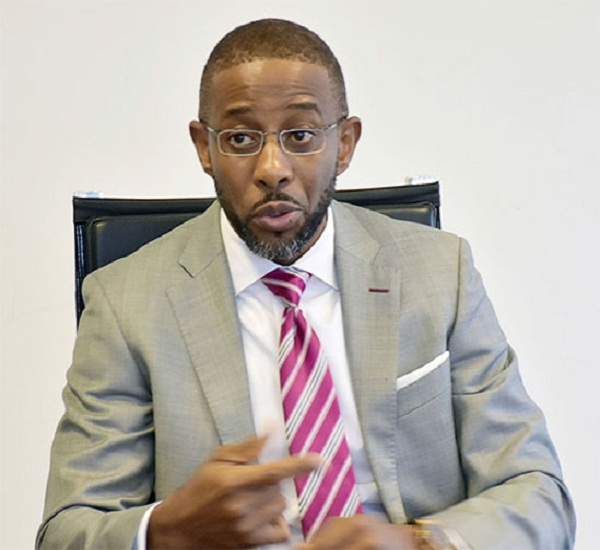The Chief Executive Officer, Century Power Generation Limited and Executive Director, Nestoil, Dr Chukwueloka Umeh, speaks about what can be done to fix the nation’s power sector
Gas shortage is a big issue in the power sector, limiting the output of many power plants in the country. What do you think is required to tackle this?
If I was a gas producer, I would not be willing to produce and sell gas to the power plants because I cannot see how the power producers will get the money for the power they sell reliably. So, if they can’t get the money from the distribution companies or from the Nigeria Bulk Electricity Trading Plc, how can they pay me for the gas that I produce?
It costs about $300m to put up a gas processing plant that produces an appreciable amount of gas – maybe about 200 million standard cubic feet per day. How can you pay for that investment if you cannot see how you will be paid by the off-takers?
And that is why I keep saying we must put the horse before the cart. You must make the value chain in the power industry work before people will be incentivised to produce gas. It can’t be the other way round. You can push the gas company all you want; as long as they don’t see how they are going to make their money, they won’t do it.
In specific terms, what do you think should be done to encourage gas producers to supply to the power sector?
Let the Discos sell power at the prices that they need to sell power so that they can make the required investment. A large percentage of Nigerians don’t have meters but they want to have meters. Until you fix that, you can’t pay for the power you receive. Until you start paying for the power you receive, you can’t incentivise gas producers to produce.
What has Century Power Generation’s experience been in the power sector so far?
It has been very frustrating. We invested over $15m in this power industry but we have not even laid one block in our power plant because we can’t raise the money yet. Why? Because we cannot see how the national grid will pay for the power we will produce. So, we can’t put the money in.
We started in 2012 to do this development. We started with buying the land, doing feasibility study, doing a business plan and doing the power load study for the transmission lines. We have done the environmental impact assessment, and got approvals from the World Bank and the Federal Ministry of Environment. We got a generating licence, negotiated a power purchase agreement with NBET, and close to the finish line, we were told, “Well, you can only be paid a certain amount of money for the power you produce.”
That was not what we were told when we started. Even with that, we said, “Fine, let’s sign the power purchase agreement, even with the $7.50 that the government said it would pay.” But it still haven’t signed it. So, foreign investment is running away from Nigeria because of the uncertainties in the regulations. The regulations continue to change. Every year or two years, you have one new regulation in the power industry, so you don’t really know what you are working according to and the investments you already made are wasted.
And they are asking us to make more investment? We are set to build a 495 megawatts plant. That is about 10 per cent of the power we generate today in Nigeria as a whole. If I was leading Nigeria, I would be following a company like ours and saying, “What can we do to help you?” Century Power should not be chasing the government and saying, “Let me do this.” Government should be chasing companies like us to say, “What can we do to help you produce more power?” But it is the other way round. It doesn’t work and that is the problem.
To get the power sector working properly, what do you think are the major issues that need to be fixed as quickly as possible?
First, the government should sign the regulations that will allow power plants to buy gas at whatever price the gas companies need to sell it. It should allow the gas transporters to charge a transport tariff that allows them to build more gas pipelines. It should allow the power generators to sell their power at a cost-reflective tariff. It should also allow us to build, own and operate transmission lines if we have to. Finally, the government should allow the distribution companies to sell their power at a cost-reflective tariff so that they can make the required investments.
Secondly, the government needs to relax the regulations for the industry to work. I am not saying do not regulate it but let private companies deal with one another using the “willing buyer – willing seller” model. You cannot regulate gas price. You cannot regulate the price of power that the generating companies produce and you cannot regulate the price that distribution companies sell their power. Let competition regulates the price. People will buy. Today, you probably pay about N30 per kilowatt per hour for the power you get from the national grid; when you use your generator, you are probably paying close to N100. But you don’t know that. You will be happy to pay N50 if you get power for 24 hours a day, seven days a week, you will be happy to pay it. But a lot of Nigerians do not know what they are currently paying, so they think that the government is doing them a favour by regulating these prices. They are not doing them a favour.
Thirdly, the government needs to provide sovereign guarantees to companies so that they can actually borrow money from foreign entities to make the required investments. It is not very hard to do. We have done it before. When we started to do it, and that is why Azura Power was built. We need to get back to the basics and focus.
Finally, the government needs to see private companies as partners in the power industry. It is only when you see them as partners that you can actually sit down and have an open conversation with them.
The oil and gas industry has yet to recover from the slump in crude oil prices. Can you speak to its impact on indigenous operators like Nestoil?
The decline in oil prices meant that there were fewer investments in the oil and gas industry by the majors, and that meant fewer jobs for companies like Nestoil. That also meant that money was harder to come by. It had a really challenging effect on our business. When you have little money, you have to restructure the way you do business. You have to become more prudent and efficient. So that means unfortunately some people had to lose their jobs. That means unfortunately, you owe some of the people that supply things to you for a little longer. And that also means that you cannot necessarily deploy all the resources, equipment and people that you need to deploy to get jobs done. I think it is a curse and a blessing at the same time. It has been a blessing in the sense that we have been made to rejig the way we do things to become more efficient, and it was a curse because unfortunately some people had to leave the company and some of the things that we were doing had to slow down like one of the pipelines that we are building. But now that the oil price is coming back up, we are beginning to see more oil producers willing to make investment again. We are yet to see those jobs come but we are hopeful that they are going to come.
Nestoil, through its subsidiary, Neconde, was among indigenous operators that acquired assets from oil majors before the oil price slump. Has it been able to pay up its acquisition loans?
We haven’t paid up our loans yet. We are servicing the loans, which is good. We just restructured our loans, about $650m. That is a big deal for a company like ours to restructure that kind of loans. We think that if Neconde, is allowed to be the sole operator of that asset, just like some of the other companies, we can do much more because we can plan better how to produce the oil more; we can plan more investment even if we have to borrow money to do the investment and we can also focus on the gas side of the business and make the required investment.
But if you are not the operator, it is hard for you to plan because of course you have to carry your partner along and if your partner is not fully aligned on the ideas you have to do the field development, it is going to be a very tough job to do. I must say the government has come a long way in at least working with us to develop the fields a little bit better. But in giving kudos to the government for what they have done, we are asking them to do much more: allow us to operate the asset just the same way that other companies that acquired assets are allowed to do, and watch what we will do. At the end of the day, the government will still get their share of the proceeds; we will still be able to pay our taxes and we can employ more people and do more for the industry.
Source: Punch










